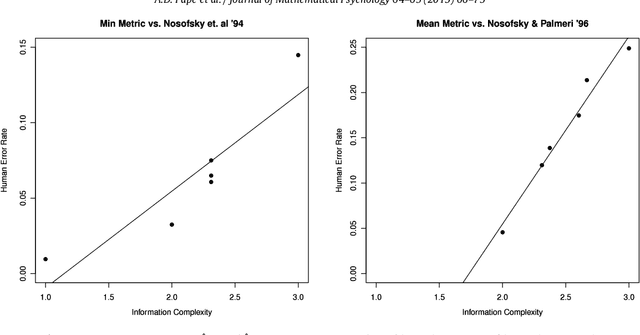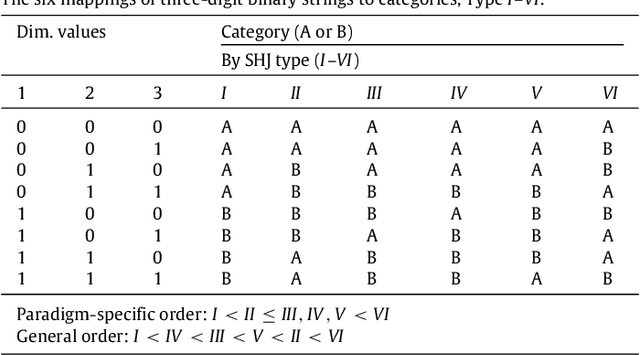Complexity Measures and Concept Learning
Paper and Code
Jan 23, 2015



The nature of concept learning is a core question in cognitive science. Theories must account for the relative difficulty of acquiring different concepts by supervised learners. For a canonical set of six category types, two distinct orderings of classification difficulty have been found. One ordering, which we call paradigm-specific, occurs when adult human learners classify objects with easily distinguishable characteristics such as size, shape, and shading. The general order occurs in all other known cases: when adult humans classify objects with characteristics that are not readily distinguished (e.g., brightness, saturation, hue); for children and monkeys; and when categorization difficulty is extrapolated from errors in identification learning. The paradigm-specific order was found to be predictable mathematically by measuring the logical complexity of tasks, i.e., how concisely the solution can be represented by logical rules. However, logical complexity explains only the paradigm-specific order but not the general order. Here we propose a new difficulty measurement, information complexity, that calculates the amount of uncertainty remaining when a subset of the dimensions are specified. This measurement is based on Shannon entropy. We show that, when the metric extracts minimal uncertainties, this new measurement predicts the paradigm-specific order for the canonical six category types, and when the metric extracts average uncertainties, this new measurement predicts the general order. Moreover, for learning category types beyond the canonical six, we find that the minimal-uncertainty formulation correctly predicts the paradigm-specific order as well or better than existing metrics (Boolean complexity and GIST) in most cases.
 Add to Chrome
Add to Chrome Add to Firefox
Add to Firefox Add to Edge
Add to Edge